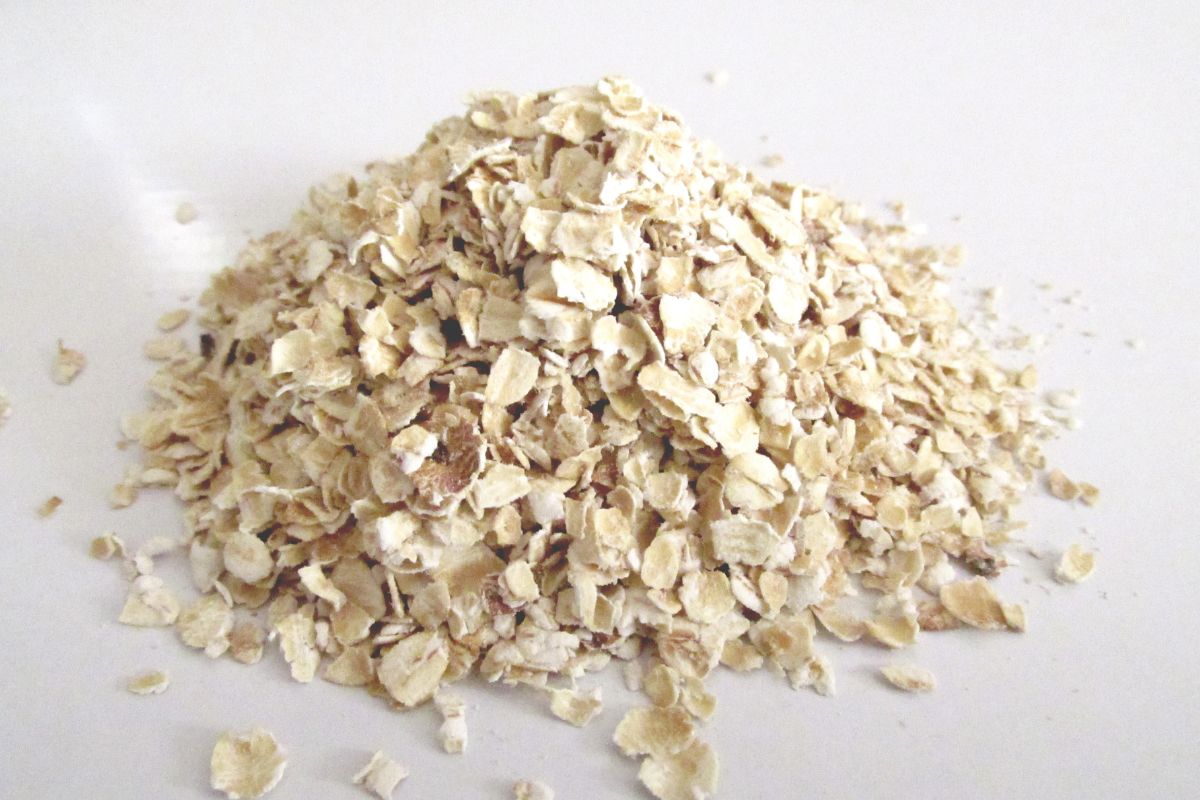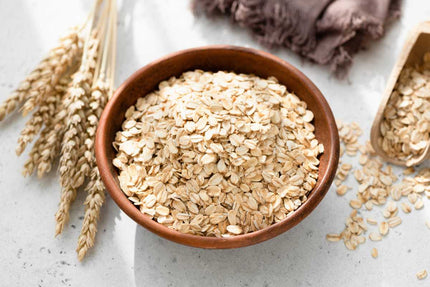The Truth About Eating Expired Oats - What You Need to Know

Oats are a cherished staple in many diets, known for their health benefits and versatility. But what do you do with a box of oats that's past its expiration date? Is it still safe to eat, and are there other ways to use it? This comprehensive guide delves into the safety, health implications, and creative uses of expired oats, offering insights backed by research and expert opinions. We'll explore everything from the basics of expiry dates to practical tips for maximizing the shelf life and utility of your oats.
Table of Content:
- Expiry Dates: Understanding the Basics
- Understanding the Shelf Life of Oats
- What Happens If You Eat Expired Oats?
- Signs of Spoiled Oats
- Storage Tips for Maximum Freshness
- Health Implications of Eating Expired Oats
- What Can You Do With Expired Oatmeal?
- Bottom Line
- FAQs About Expired Oats
Expiry Dates: Understanding the Basics
When it comes to food products, understanding expiration dates is crucial. These dates, often labeled as 'best before' or 'use by,' are indicators set by manufacturers to suggest when a product is expected to start declining in quality. However, these dates are not hard-and-fast rules for safety. Especially with products like oats, the 'best before' date is more about quality than safety. This means that oats can often be safe to consume after this date, provided they have been stored correctly and show no signs of spoilage.
Shelf Life of Oats
The shelf life of oats largely depends on their type and how they're stored. Properly stored in an airtight container in a cool, dry place, commercially processed oats can last up to two years. However, specialized oats, like flavored oatmeal or organic varieties, may have a shorter shelf life. For instance, flavored oatmeal with added ingredients like dried fruit can start to spoil in about six to nine months. Processing methods, such as steaming and toasting used by larger brands, extend the oats' shelf life. Even when oats start showing signs of aging, like sour taste or discoloration, they're usually safe to eat if there's no mold.
What Happens If You Eat Expired Oats?
In general, consuming oats that are past their expiration date but show no signs of spoilage (like mold or unpleasant odor) is unlikely to cause harm. The taste and nutritional value might diminish over time, but they typically remain safe to eat. Always inspect the oats thoroughly before consumption.
Signs of Spoiled Oats

It's crucial to recognize the signs of spoiled oats to avoid potential health risks. Here's a list of indicators to watch out for:
-
Mold Growth: The most obvious sign of spoilage. Mold can appear as fuzzy spots in various colors. Any presence of mold means the oats should be discarded.
-
Discoloration: Fresh oats typically have a cream or beige color. If you notice any unusual colors, especially bright or dark spots, it could indicate contamination.
-
Unpleasant Odor: Oats should have a mild, slightly nutty aroma. A sour or rancid smell is a clear sign that the fats in the oats have turned bad.
-
Texture Changes: Fresh oats are dry and flow freely. If they feel sticky, clumpy, or have a slimy texture, they're not safe to eat.
-
Pests or Insect Infestation: Any signs of bugs, like weevils or pantry moths, mean the oats are contaminated and should not be consumed.
- Off Taste: If the oats pass the visual and smell test but taste off or stale, it's best to avoid eating them.
Storage Tips for Maximum Freshness
Proper storage is key to maintaining the freshness and extending the shelf life of your oats. Here are some effective tips to ensure your oats stay fresh for as long as possible:
-
Choose the Right Container: Transfer oats to an airtight container. Glass, stainless steel, or heavy-duty plastic containers are ideal choices.
-
Keep Them Cool and Dry: Store the container in a cool, dry place. A pantry or a cupboard away from heat sources like stoves or sunlight is perfect.
-
Avoid Moisture: Ensure the storage area is not prone to moisture, as this can lead to mold growth. Keeping oats in a moisture-free environment is crucial.
-
Limit Air Exposure: Once you open a package of oats, try to remove as much air as possible before sealing the container. This practice minimizes oxidation and prolongs freshness.
-
Label and Date: Mark the container with the date you opened the oats. This will help you keep track of their freshness.
-
Consider Refrigeration for Long-Term Storage: For extended storage, especially in warmer climates, consider keeping your oats in the refrigerator or freezer. This slows down the degradation process.
-
Regularly Inspect for Freshness: Make it a habit to check your oats regularly for signs of spoilage, especially if they've been stored for a long time.
-
Avoid Cross-Contamination: Use a clean, dry scoop or spoon each time you use the oats. This prevents the introduction of contaminants.
-
Use Oxygen Absorbers: For very long-term storage, using oxygen absorbers can help prevent the growth of pests and mold.
- Keep Away from Strong Odors: Store oats away from foods with strong odors, as oats can absorb these smells, affecting their taste and quality.
Remember, the way you store your oats can greatly impact their longevity and freshness.
Health Implications of Eating Expired Oats

Generally, eating expired oats, if they show no signs of spoilage, is not harmful. However, it's important to understand the potential risks and changes that can occur in oats over time.
-
Nutritional Degradation: Oats are prized for their nutritional value, including fiber, vitamins, and minerals. Over time, particularly past their expiration date, the nutritional quality of oats may slightly degrade. While this doesn't necessarily make them harmful, they might not offer the same health benefits as fresher oats.
-
Rancidity and Oxidation: Oats contain fats that can oxidize and become rancid. Rancid oats are not typically harmful but may have an off-taste and smell. Prolonged consumption of rancid foods can contribute to inflammation in the body, although the occasional consumption of slightly rancid oats is unlikely to cause harm.
-
Digestive Discomfort: For some individuals, eating expired oats, especially if they are starting to turn rancid, can lead to mild digestive discomfort. This is usually due to changes in the fat content and possibly slight changes in the fiber structure.
-
Allergic Reactions: For those with sensitivities or allergies, the consumption of expired oats that have undergone changes in their composition can trigger allergic reactions. This is more likely if the oats have been contaminated with mold or pests.
-
Loss of Therapeutic Benefits: Oats are known for certain therapeutic benefits, like lowering cholesterol and stabilizing blood sugar levels. However, these benefits might be reduced in expired oats due to changes in their chemical composition.
Understanding these potential health implications can help you make informed decisions about whether to consume expired oats or not.
What Can You Do With Expired Oatmeal?
Creative Uses for Expired Oatmeal
While expired oatmeal may not always be suitable for direct consumption, especially if it's beyond its expiration date, it doesn't mean it has to go to waste. Here are some creative ways to repurpose your oatmeal, ensuring that it doesn't end up in the trash:
-
Oatmeal Scrub for Dry Skin: For those with dry skin, creating a nourishing face and body scrub is a great use for expired oatmeal. Combine oatmeal with raw milk and honey to make a scrub. The milk offers a soothing effect, while honey provides moisture, leaving your skin soft and hydrated.
-
Oatmeal Paste for Oily Skin: If you're dealing with oily skin, an oatmeal-based paste can be quite beneficial. Mix oats with curd (or yogurt) to help remove excess oil from the skin, giving it a natural glow. Alternatively, for an enhanced effect, you can substitute curd with tomato or lemon. These ingredients are not only suitable for oily skin but also act as natural bleaching agents, helping to brighten and even out your skin tone.
-
Baking Delights: Use expired oatmeal in baking recipes. Whether it's oatmeal cookies, muffins, or bread, baking can often neutralize potential bacteria, and the oatmeal can add a delightful texture to your baked goods.
-
Smoothie Booster: Blend expired oatmeal into your smoothies. It's a great way to add fiber and a unique texture, while the other flavors in the smoothie can mask any staleness in the oats.
-
Classic Porridge: If the oatmeal is just slightly past its prime, cooking it into a traditional oatmeal porridge can still be a comforting breakfast option.
-
Homemade Granola: Mix expired oatmeal with nuts, seeds, dried fruits, and a sweetener to create your own granola. Bake it until it’s crispy and enjoy it as a snack or with yogurt.
-
Pancakes and Waffles: Oatmeal can be a great addition to pancake or waffle batter, offering a nutritious boost and interesting texture.
-
Energy Bars and Bites: Combine the oatmeal with ingredients like nut butter and dried fruit to create homemade energy bars or bites – perfect for a quick snack.
-
No-Bake Treats: For an easy, no-fuss option, use expired oatmeal to make no-bake treats like energy balls or refrigerator oatmeal parfaits.
- Pet-Friendly Cookies: If you're unsure about using the oatmeal for human consumption, consider making pet treats. Ensure that all ingredients are safe for your pets.
Safety First!
Always exercise caution when using expired food items. If the oatmeal smells off or shows any signs of mold, it's best to discard it. While these creative ideas can help minimize waste, the safety and quality of what you consume should always be a priority.
Using expired oatmeal in these ways not only gives new life to a product that might otherwise be wasted, but it also encourages culinary creativity and sustainability in the kitchen. Remember, it's always preferable to use ingredients within their recommended shelf life for the best taste and quality.
Bottom Line:
Remember, while eating expired oats might not pose a significant health risk if they appear fine, it's always better to err on the side of caution and ensure your oats are stored correctly to maintain their freshness and nutritional value.
FAQs About Expired Oats
1. Can expired oats make you sick?
Generally, expired oats won't make you sick if they don't show signs of spoilage like mold, bad smell, or insect infestation. However, the nutritional quality might be diminished.
2. How long can you eat oats after their expiration date?
Properly stored oats can be consumed months or even years beyond their expiration date. The exact time depends on the type of oats and storage conditions.
3. What are the signs that oats have gone bad?
Signs include mold, unusual discoloration, foul odor, or the presence of pests.
4. Can you still cook with expired oats?
Yes, if the oats are free from spoilage signs, you can use them in cooking and baking.
5. Do different types of oats have different shelf lives?
Yes. For example, quick-cooking oats can last much longer than steel-cut oats under proper storage conditions.
